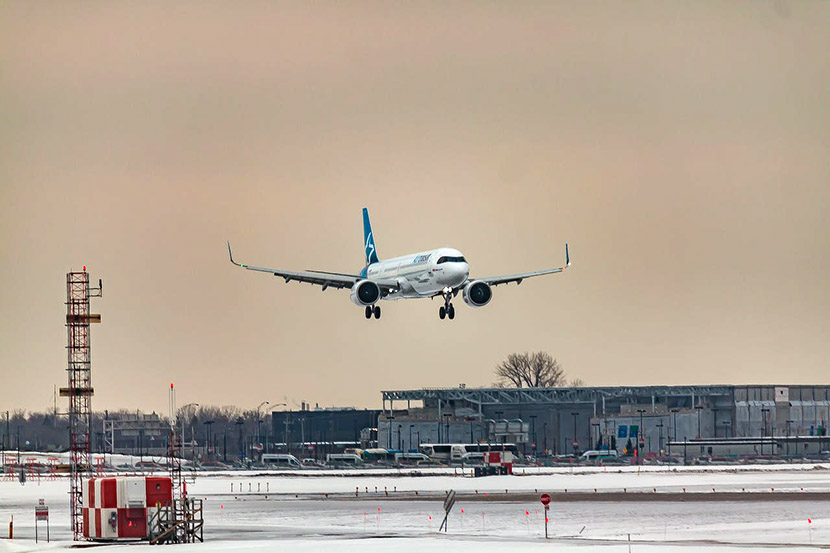Saturday, March 23, 2024

In the aviation industry, flight safety measures are a paramount concern, not only for airlines but for passengers, regulatory bodies, and the global travel industry at large. The airline industry has continually evolved its safety protocols and technologies to meet and exceed the stringent standards set by international aviation authorities. This commitment to safety has made air travel one of the safest modes of transportation available today.
The Evolution of Flight Safety Measures
Flight safety measures have undergone significant transformations since the dawn of commercial aviation. Initially, safety protocols were rudimentary, focusing mainly on basic aircraft maintenance and pilot training. However, as the airline industry expanded and technology advanced, so did the complexity and efficacy of safety measures. Today, flight safety encompasses a broad spectrum of strategies, including advanced engineering controls, rigorous training programs for crew members, sophisticated air traffic control systems, and comprehensive emergency response plans.
Advanced Engineering and Technological Innovations
One of the cornerstones of modern flight safety is the integration of advanced engineering solutions and technological innovations. Aircraft are designed with redundant systems to ensure functionality even in the event of a failure. For instance, modern airplanes are equipped with multiple engines, hydraulic systems, and electrical circuits, any of which can independently support the aircraft’s critical functions if others fail.
Technological innovations such as Enhanced Ground Proximity Warning Systems (EGPWS) and Traffic Collision Avoidance Systems (TCAS) have significantly reduced the risk of accidents due to terrain collision and mid-air collisions, respectively. Moreover, real-time health monitoring systems in aircraft can predict and alert maintenance crews to potential issues before they become safety threats, ensuring that preventative measures can be taken promptly.
Rigorous Training and Human Factors
The human element plays a critical role in the safety of flight operations. Recognizing this, airlines invest heavily in comprehensive training programs for pilots, cabin crew, and ground staff. Simulators are used extensively to train pilots, allowing them to experience and respond to a variety of emergency scenarios in a controlled environment. This training is vital not only for handling uncommon situations but also for refining decision-making skills and improving teamwork and communication under pressure.
Cabin crew members are trained in emergency procedures, including the evacuation of passengers, first aid, and firefighting, ensuring they can act swiftly and efficiently in emergencies. Additionally, the industry places a strong emphasis on understanding human factors, such as fatigue management, to minimize human error, which has historically been a significant contributor to accidents.
Regulatory Frameworks and International Cooperation
Flight safety measures are underpinned by comprehensive regulatory frameworks established by international and national aviation authorities. The International Civil Aviation Organization (ICAO), a UN specialized agency, plays a pivotal role in developing global aviation safety standards and recommended practices. These regulations cover all aspects of aviation, from aircraft design and maintenance to flight operations and crew training.
Airlines and countries collaborate closely to adhere to these standards, and regular audits are conducted to ensure compliance. The sharing of safety-related information among airlines and with regulatory bodies is encouraged to foster a culture of transparency and continuous improvement.
The Future of Flight Safety
Looking ahead, the future of flight safety in the airline industry is poised to be shaped by further technological advancements and enhanced international cooperation. Unmanned Aerial Vehicles (UAVs) and Artificial Intelligence (AI) are expected to play increasingly significant roles. UAVs, for example, could be used for inspection purposes, reducing the risk to human inspectors, while AI could enhance predictive maintenance and flight monitoring systems.
Sustainability is also emerging as a key factor, with the development of more fuel-efficient and environmentally friendly aircraft, which also contribute to safety by reducing the risk of fuel-related issues. Additionally, global initiatives aimed at increasing data sharing and collaboration across the aviation industry promise to further enhance the effectiveness of flight safety measures.
The airline industry’s commitment to flight safety is unwavering, with continuous advancements and innovations designed to protect passengers, crew, and aircraft. Through a combination of advanced technology, rigorous training, comprehensive regulatory oversight, and international collaboration, the industry strives to maintain and enhance the high safety standards that have made air travel the safest mode of transportation. As we look to the future, the integration of new technologies and a sustained focus on sustainability and cooperation will continue to drive improvements in flight safety, ensuring that air travel remains a secure and trusted choice for millions of passengers worldwide.
The unwavering focus on safety within the airline and aviation industries highlights their commitment to ensuring the wellbeing of passengers and crew. This commitment, supported by the continuous evolution of flight safety measures, not only enhances the overall travel experience but also solidifies the trust between passengers and airlines. As the industry moves forward, embracing new technologies and methodologies, the paramount importance of safety remains clear, underpinning every flight and every innovation in the ever-dynamic landscape of air travel.
Saturday, April 27, 2024
Saturday, April 27, 2024
Saturday, April 27, 2024
Saturday, April 27, 2024
Friday, April 26, 2024